14 Essential Winter Skin Care Tips That You Should Follow
Some effective points to keep in mind if you want to win your war against winter skin woes.

Image: iStock
“To keep a warm heart in winter is the real victory”, they say. But to keep healthy skin in winter is the real challenge. If you are struggling to maintain your skin during winter, we have a few winter face care tips that help you maintain your skin’s moisture. Your skin loses the natural moisture, resulting in itchy and dry skin. In some cases, it can even lead to psoriasisi An autoimmune inflammatory condition marked by red, scaly, itchy, and dry patches on the skin. , eczemai An inflammatory condition where the skin becomes excessively dry, rough, and itchy. , and other skin conditions (1). If you are wondering how to take care of your skin in winter naturally, and struggling to maintain your skincare routine, we have a few winter face care tips to help you maintain your skin’s moisture. Here’s a list of 14 tips that can help you keep your skin care issues at bay during winter. Keep reading!

In This Article
14 Skin Care Tips For Winters
1. Use Lukewarm Water

It is very tempting to go for hot showers when the temperature is dipping. But if you love your skin, avoid them. Instead, use lukewarm water to shower and wash your face. Hot showers dry your skin quickly, and if you do not moisturize it immediately, your skin can develop cracks and winter eczema (2). Once you have taken a lukewarm shower, apply a moisturizer that contains hyaluronic acid and ceramidesi A class of naturally occurring fats or lipids that holds skin cells firmly together in the uppermost layers of the skin. . This will keep the moisture barrier intact and prevent dryness.
2. Stay Hydrated
Be it inside your home or outside, the air is drier in winter. And as a result, water evaporates from your body easily. Hence, you need to keep your skin hydrated. You can take hot water steam or also install a humidifier to manage the moisture level in your home (3). This will certainly keep your skin happy.
3. Choose Skin Care Products Wisely

What kept your skin happy during summers can make it sad during winters. And that’s why you need to change your skin care products accordingly. The key to healthy and glowing winter skin is using mild skin care products. Choose cleansers that contain moisturizers to avoid stripping your skin of its natural moisture barrier. If you have acne or breakouts, use products containing ceramides, hyaluronic acid, hydration serums, and glycerin to help in repairing the moisture barrier of your skin (4).
Avoid masks and peels, astringent lotions, and any product that contains alcohol as they make your skin dry during the winter.
Neha Kaushal, a beauty blogger, shares her special winter morning skin care routine, in one of her blog posts. She talks about using the right natural ingredients to combat dry skin issues during the winters. She writes, “After washing my face I apply rose water and glycerin toner on my face. This toner does wonders on my skin. It softens and moisturizes the skin and decreases dryness and itching (i).” She also adds that she avoids lemons, multani mitti (Fuller’s earth), rice flour, and potatoes, in her natural skin care remedies because they have a drying effect.
4. Protect Your Skin
Your skin needs protection from the cold wind or snow or rain if you are stepping out in winter. So, wear gloves, caps, and hats and do not forget your sunscreen lotion. The warm sun rays feel pleasant, but the UV rays can still damage your skin a lot. Choose a sunscreen that has titanium dioxide or zinc oxide.
 Quick Tip
Quick Tip5. Do Not Exfoliate Your Skin A Lot

Exfoliating removes dead skin cells, which helps you get glowing skin. You have to be careful during winters because your skin barrier is already compromised due to the dry and cold weather. Exfoliating your skin once a week is fine – this helps in boosting skin regenerationi A natural process where the dead skin cells fall away from the top layer, revealing new skin cells. and better product absorption (5). Also, exfoliation you should exfoliate depending on your skin type. If you have very dry skin, exfoliate your skin lightly. If you have combination and oily skin, once a week is fine.
6. Don’t Forget The Hands
The skin on your hands has fewer oil glands as compared to the skin on any other body part. That’s why moisture escapes from your hands quickly, making them prone to cracks and itchiness. Apply a moisturizer before you go out.
7. Care For Your Feet

Choose glycerin-based creams and petroleum jelly to moisturize your feet (6). Also, make sure you exfoliate the skin on your feet occasionally so that it can absorb the moisturizer easily.
8. Do Not Wear Wet Clothes For Too Long
This will irritate your skin further and cause itchiness. Walking and playing in the snow is fine, but make sure you remove the wet socks, pants, and gloves as soon as possible.
9. Avoid Anything That Irritates The Skin

Follow this if you have persistent skin issues like eczema. Winter skin is extremely fragile, and exposure to allergens can trigger your symptoms. Many people are allergic to wool but cannot resist the temptation to wear their winter knits. If this is the same scenario with you, always choose winter wear that is made from high-grade wool. If possible, go for winter wear made from cotton.
10. Don’t Ditch The Sunglass
This is especially for those who live in places where it snows heavily. The glare from the sun and snow can harm the skin around your eyes and cause brownspots, fine lines, and other issues. So, whenever you step outside, make sure that you wear good quality UV protected sunglasses, preferably with wide arms.
11. Follow A Daily Skin Care Routine

It doesn’t need to be elaborate. Here’s a very basic and simple skin care routine that anyone can follow to keep their skin happy during the winter. Cleanse your skin once or twice a day, preferably in the morning and before going to bed. After washing your face in the morning, apply a light daily moisturizer to lock the moisture in. And at night, use a heavy moisturizer or overnight cream. Apply the cream on damp skin, as just-washed skin absorbs moisture better. This is one of the best tips for dry skin, especially during the winter.
 Quick Tip
Quick Tip12. Take Care Of Your Diet
Consume a lot of seasonal fruits and veggies (7). Berries are exceptional sources of vitamins and antioxidantsi Chemical compounds that inhibit oxidation by fighting free radicals and prevent cell damage and diseases. that your skin needs to stay healthy during the cold weather. Strawberries, grapes, blueberries, raspberries, or cherries – pick anything you love. Also, if you think that you are missing out on the hydration part (limited water intake), you can cover that up with fruits, veggies, and other food items such as soups, salads, juices, and milk. In this way, your body will get the nutrients to keep the skin healthy.
13. Exercise

Yes! I know it’s hard to leave the warmth and coziness of the blanket behind and get moving on a chilly winter morning. But do it if you love your skin. Exercise will pump up your heart rate, which in turn, pumps more blood to your organs and skin.
14. Use Retinol
The cold air in winter can make your skin really dry. This is the perfect time to introduce retinol into your skincare routine. It is a derivative of vitamin A that controls sebum production, reduces fine lines, blemishes, and wrinkles, and improves overall skin texture. It is also used to combat excessive dryness and flaking (8). Start with 0.2% to 0.3% concentration of retinol and use it once or twice a week to avoid irritation. If no issues arise, then you can increase the frequency to every other day to reap the benefits of this powerful skincare ingredient.
During the winter, the oil and sweat glands in your body and the blood vessels constrict a bit. This makes it hard for your skin to keep itself healthy and glowing naturally, and that’s why it needs your help. These tips are not difficult to follow, and you can easily include them in your daily routine.
Key Takeaways
- Follow a moisturizing winter skin care routine during these harsh months and keep your skin looking healthy and supple.
- Remove any dirt, oil, and pollutants by cleansing the skin frequently; additionally, ensure the use of a mild, hydrating cleanser to retain the skin moisture.
- To prevent your skin from looking flaky and lifeless, use a moisturizer with glycerin and shea butter as ingredients.
- Exfoliate once weekly to remove dead skin cells improve the texture and look of your skin but do not over exfoliate
- Wearing a scarf, gloves, and cap to shield the skin from the wind and cold can also help prevent dryness and skin damage. Also, positively apply sunscreen in winter
Infographic: Top 5 Winter Skin Care Tips
With winter comes its major skin challenges, from dry, flaky skin to chapped lips. Following the tips mentioned in the infographic below will help you get your winter skin care regimen sorted and ensure those common problems stay at bay. Check it out and say hello to beautiful, supple skin!

Illustration: StyleCraze Design Team
As winter arrives, most people, especially those who have dry skin, get worried that their skin will become dry and flaky in the chilly weather. If you are having trouble keeping your skin moisturized during this season, the winter face care tips listed above may be of assistance. Remember that winter skin care is important to keep it protected from harsh, cold weather. Diet, exercise, sleep, and staying hydrated play an important role in keeping your skin looking fresh and helping with stress management. Following these tips and hacks will help your skin stay healthy and glowing. However, if you still experience dryness, irritation, or discomfort after following these healthy skin guidelines, consult a dermatologist for medical treatment.
Frequently Asked Questions
What should I do if my skin is extremely dry?
If your skin feels overly dry during winter, switch to a richer cream or oil moisturizer and avoid harsh soaps, scrubs, and chemical peels. Drinking plenty of water and using a humidifier can also help. However, contact your doctor or dermatologist if you do not notice any improvement despite taking all these measures. They may prescribe you medicated alternatives to soothe and heal your skin.
Can we use a toner in winter?
Yes, we can use a toner in winter to keep our skin fresh and rejuvenated. Remember to include a hydrating toner in your daily skincare routine for the winter.
Can aloe vera gel be used in winter?
Yes, aloe vera gel helps treat skin dryness and dehydration, which is common in the winter. It moisturizes the skin without leaving it oily. It is ideal for all skin types.
Is coconut oil good for your face in winter?
Yes. Along with delivering additional moisturization, coconut oil also ensures your skin does not lose moisture through the pores. It works by coating the skin with a protective barrier. So, it is important to include this oil in your skincare routine for dry skin, especially during the winter season.
Which oil is best for the skin in winter?
Almond oil is perfect for dry skin and can assist with itching, discomfort, and dryness in the winter. It is used to treat dry skin conditions such as psoriasis and eczema. Almond oil also smoothes and rejuvenates skin and improves complexion and skin tone (9).
Illustration: Essential Winter Skin Care Tips That You Should Follow

Image: Stable Diffusion/StyleCraze Design Team
Winter can make your skin feel dry and appear dull. Check out this video to find top 10 expert tips to help keep your skin healthy and glowing even in harsh cold weather!
Personal Experience: Source
StyleCraze's articles are interwoven with authentic personal narratives that provide depth and resonance to our content. Below are the sources of the personal accounts referenced in this article.
i. Winter Morning Skin Care Routinehttps://medium.com/@nehakbusiness1988/winter-morning-skin-care-routine-c2e591b3f0d9
References
Articles on StyleCraze are backed by verified information from peer-reviewed and academic research papers, reputed organizations, research institutions, and medical associations to ensure accuracy and relevance. Read our editorial policy to learn more.
- The Winter Season Affects More Severely the Facial Skin than the Forearm Skin: Comparative Biophysical Studies Conducted in the Same Japanese Females in Later Summer and Winter
https://karger.com/exd/article-abstract/1/1/32/133809/The-Winter-Season-Affects-More-Severely-the-Facial?redirectedFrom=fulltext - Eczema and Bathing
https://nationaleczema.org/eczema/treatment/bathing/ - The effect of air humidification on symptoms and perception of indoor air quality in office workers: a six-period cross-over trial
https://pubmed.ncbi.nlm.nih.gov/1540009/ - Skin hydration is significantly increased by a cream formulated to mimic the skin’s own natural moisturizing systems
https://www.ncbi.nlm.nih.gov/pmc/articles/PMC6197824/ - Exfoliative Skin-peeling Benefits from This Procedure and Our Experience
https://www.ncbi.nlm.nih.gov/pmc/articles/PMC4720453/ - Moisturisers for the treatment of foot xerosis: a systematic review
https://www.ncbi.nlm.nih.gov/pmc/articles/PMC5297015/ - Plant-Based Foods for Skin Health: A Narrative Review
https://www.jandonline.org/article/S2212-2672(21)01433-7/fulltext - Retinoids: active molecules influencing skin structure formation in cosmetic and dermatological treatments
https://www.ncbi.nlm.nih.gov/pmc/articles/PMC6791161/ - The uses and properties of almond oil
https://pubmed.ncbi.nlm.nih.gov/20129403/
Read full bio of Dr. Julia Carroll
Read full bio of Ramona Sinha
Read full bio of Anjali Sayee
Read full bio of Krati Darak










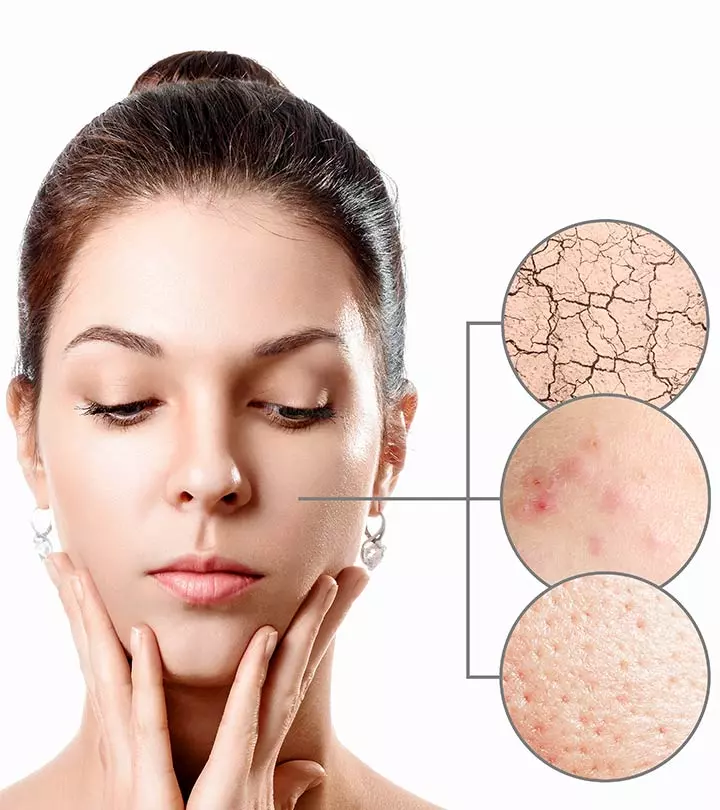






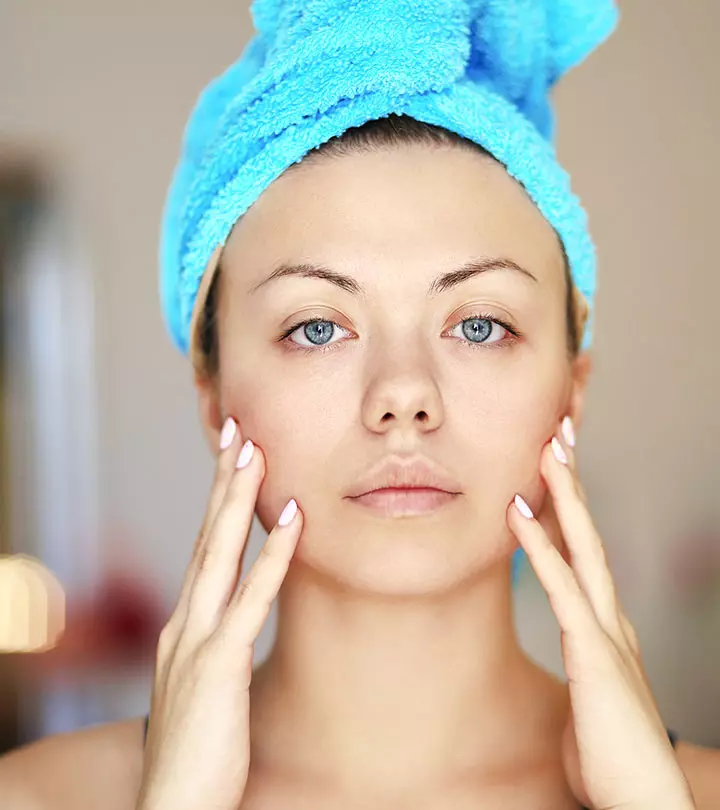

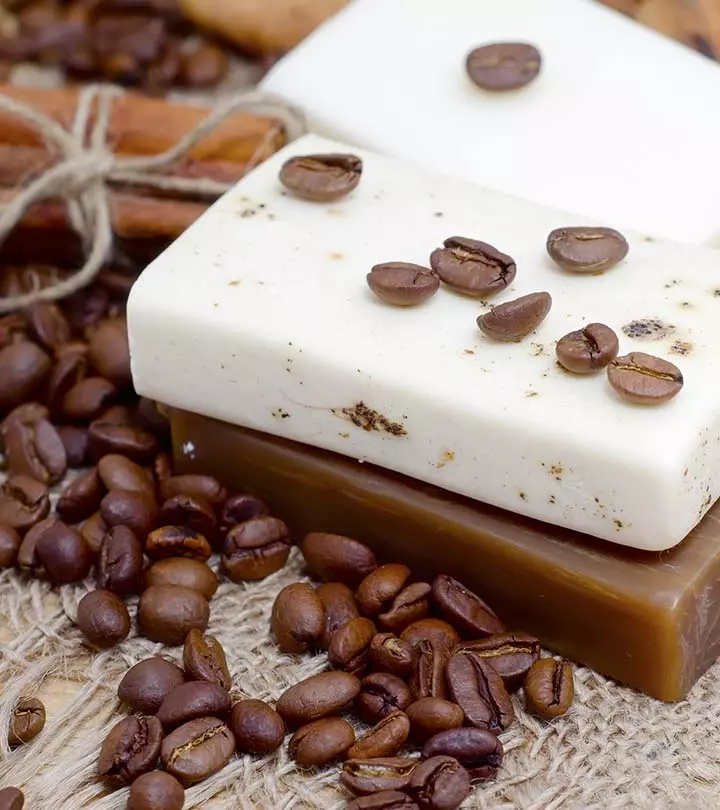

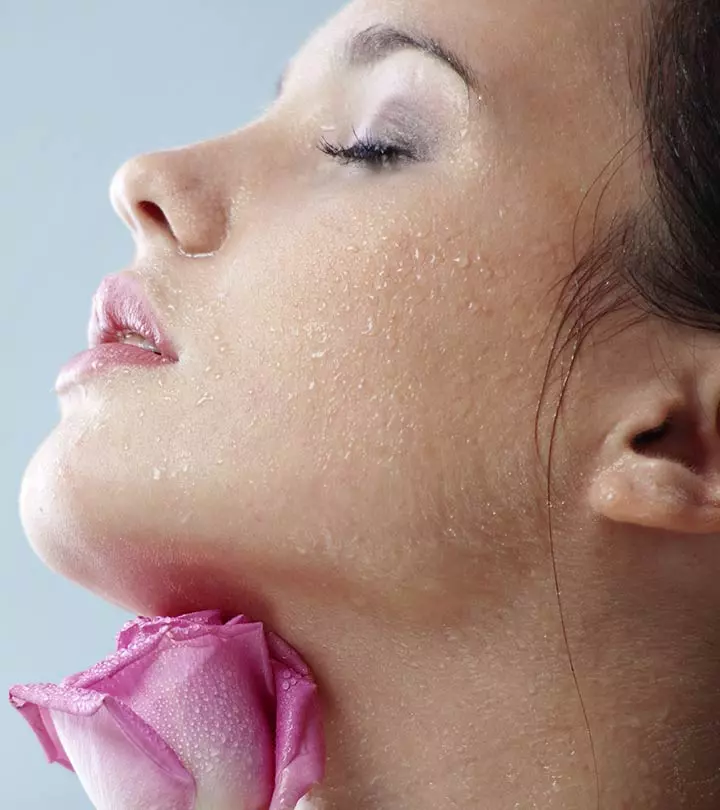

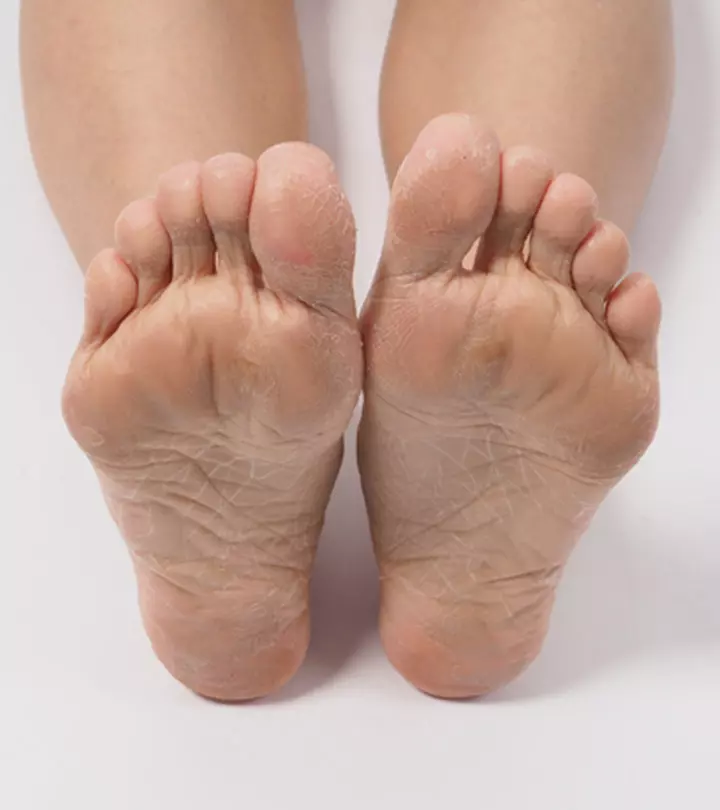


Community Experiences
Join the conversation and become a part of our empowering community! Share your stories, experiences, and insights to connect with other beauty, lifestyle, and health enthusiasts.